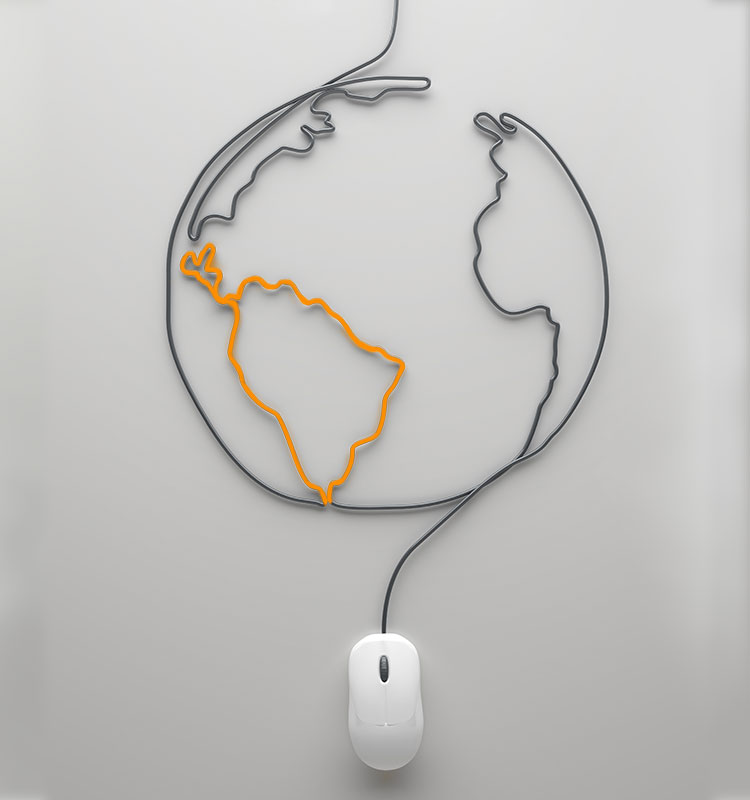
Are you looking for a Japanese language service provider for your commercial endeavours?
oneword’s language experts would be happy to advise you and prepare a free quote for you after examining your documents. As a language service provider for Japanese, we have a global network of professional native-speaker translators at our disposal to provide German to Japanese and Japanese to German translations certified to ISO 17100. And all to your advantage: Every document is technically and grammatically correct and the style and tone are accurately processed and translated by experts and experienced translators.
Language service provider for Japanese: certified, cost effective and on time
Bespoke solutions for companies
Translations into Japanese – Special features of a unique language
To understand Japanese, it is not merely a case of understanding the words, you also have to comprehend an entirely different system of grammar and writing: this language is not related to any other, even if it is sometimes claimed that its grammatical structure is similar to Korean and it is often, incorrectly, assumed that its script is identical to Chinese. The Japanese writing system uses three different character sets: approximately 6,000 Chinese characters (漢字 Kanji) and two syllabic writing systems that are derived from this (ひらがな Hiragana and カタカナKatakana). A typical Japanese sentence – and therefore also every Japanese translation – uses all three script systems, each for different elements of the sentence. The Hiragana and Katakana alphabets are identical, and differ only in how they are used and written. Katakana is used for loan words and foreign words, which are also used more and more frequently in Japanese. Many Chinese words were absorbed into Japanese when the Chinese script system was adopted. However, nowadays, the majority of loan words used in Japanese come from English (rent-a-car = レンタカー rentakā, tower = タワー tawā, etc.). For historical reasons, even some French (to skip school = サボる saboru from “sabot”), Dutch (coffee = コーヒー kōhī from “koffie”) and Portuguese (bread = パン pan von “pão”) loan words have found their way into Japanese. From the middle of the 19th century into the 20th century Japanese medicine was strongly influenced by German. This is why many German medical terms are still in use (Patientenkarte (patient card) = カルテ karute). The Japanese word for beer “ビール bīru” is also a loan word from German.

“The thing we value most about oneword is their reliability. They always take the time to answer our queries, providing prompt and tailored advice. The project managers will make nearly any deadline happen, no matter how optimistic it may seem. Even when things get hectic, they are always calm, friendly and professional. As a customer this makes you feel valued, satisfied and well taken care of.”
False friends and other pitfalls
The exact meaning of a word was often changed slightly when it was adopted by Japanese (アルバイト arubaito from Arbeit is used for ‘part time job’) or even reimagined (ナイター naitā (nighter) for an evening baseball game). When translating from Japanese into German, you must take care not be distracted by one of these ‘false friends’ and find the right translation for the word. For example, in Japan a ‘smart’ person is not necessarily someone who is intelligent – it simply means they are ‘slim’! Traditionally Japanese is written from top to bottom and from right to left. However, especially since the advent of electronic text processing, it is also written “normally” from left to right. In everyday situations, and in advertising in particular, Japanese can be written in both directions and use a mixture of all its writing systems. So, when localising or translating a text into Japanese, it is important that the layout takes the purpose of the text into consideration. Even numbers are written in different ways. Not only are there Japanese characters for each number, the numbering system itself is based on groups of myriads (10 000) rather than groups of 1000. Therefore, although the numbers 10 000 and 100 000 000 have their own numerals, a million or a billion do not. If an automated quality assurance function, for example in a translation memory system, displays a numerical error, because “1 million” was translated as “100万” (100 x 10,000), there is a danger that the correctly localised number in the Japanese translation may be changed by an inexperienced reviser.
Japanese – the key to your success in the Japanese market
Germany and Japan are countries with many common values and are closely connected with each other politically, economically and socially. After China, Japan is Germany’s most important commercial and trading partner in Asia. The EU is also currently negotiating a free trade agreement with Japan. In addition, Japan is still the world’s third largest economy (after the USA and China) and, like Germany, has a broad-based economic structure that is technologically highly developed, export-orientated, and particularly strong in the mechanical engineering, automotive engineering sectors and the electronics and chemical industries. The Japanese language stands in 9th place on the list of most commonly spoken languages. The USA and Brazil are the countries in which Japanese is most commonly spoken outside Japan. Translating into Japanese is therefore a very worthwhile activity, because you can reach an additional 130 million people. However, intercultural communications are not always entirely straightforward: It is not simply a matter of being aware of the different levels of polite address (敬語 keigo) and using the appropriate one for every person you meet. The fundamental values of Japanese society include the desire to achieve harmony and anxiety about “losing face”. In every aspect of communication, you must therefore take care to ensure that your business partners do not feel affronted or snubbed. Direct criticisms or baldly saying “No” should be avoided at all costs. The challenge here is not only to camouflage your own critical comments accordingly but also to decrypt any hidden criticisms made by the other. Translating to and from Japanese will involve either one or the other of these challenges. There are also differences in written correspondence: In Japan, a business letter may start with “seasonal greetings” or “sincere wishes for the success of your company”. A non-Japanese reader would be rather bemused to find a sentence like “Spring has been particularly beautiful this year, and I hope that your business is also blossoming”, in the translation of a business letter. For this reason, these types of greetings are simply missed out when translating or localising a text from Japanese into German or any other language. The Japanese language can be a major hurdle. But it is also the key to understanding the economic mindset of the Japanese. This is why you should put your Japanese translations in experienced hands! As a language service provider for Japanese, we are happy to support you.
You may also be interested in
8 good reasons to choose oneword.
Learn more about what we do and what sets us apart from traditional translation agencies.
We explain 8 good reasons and more to choose oneword for a successful partnership.




